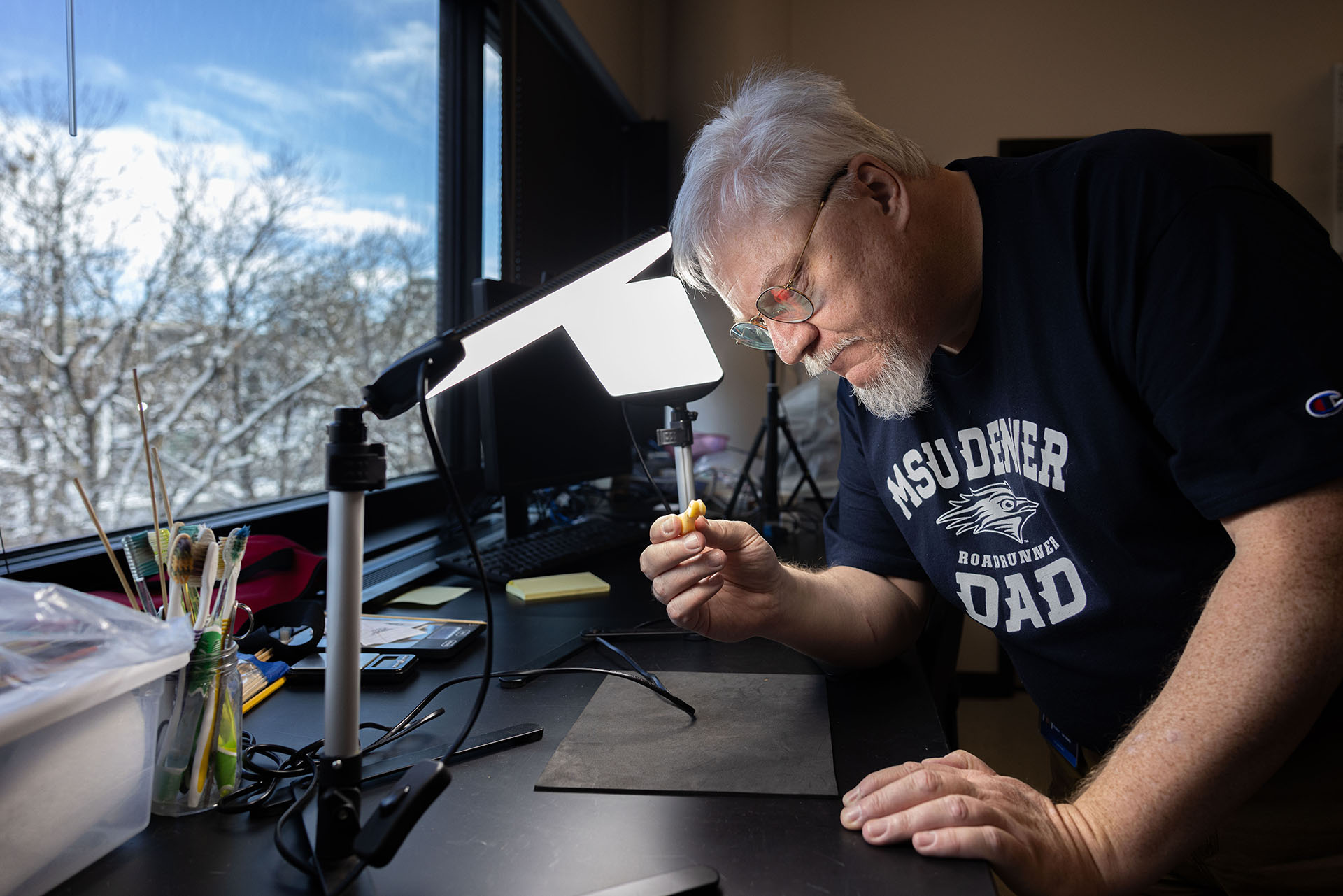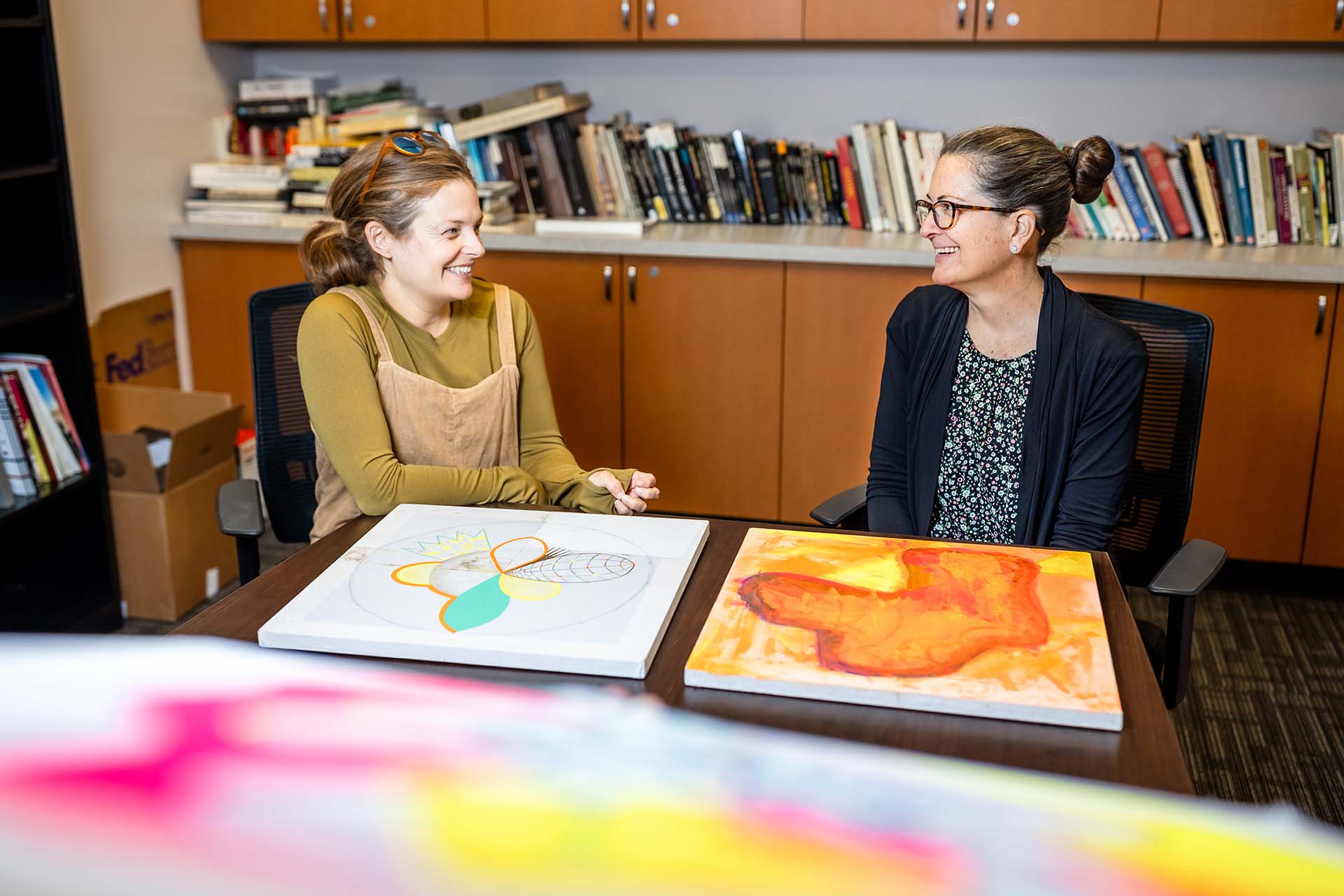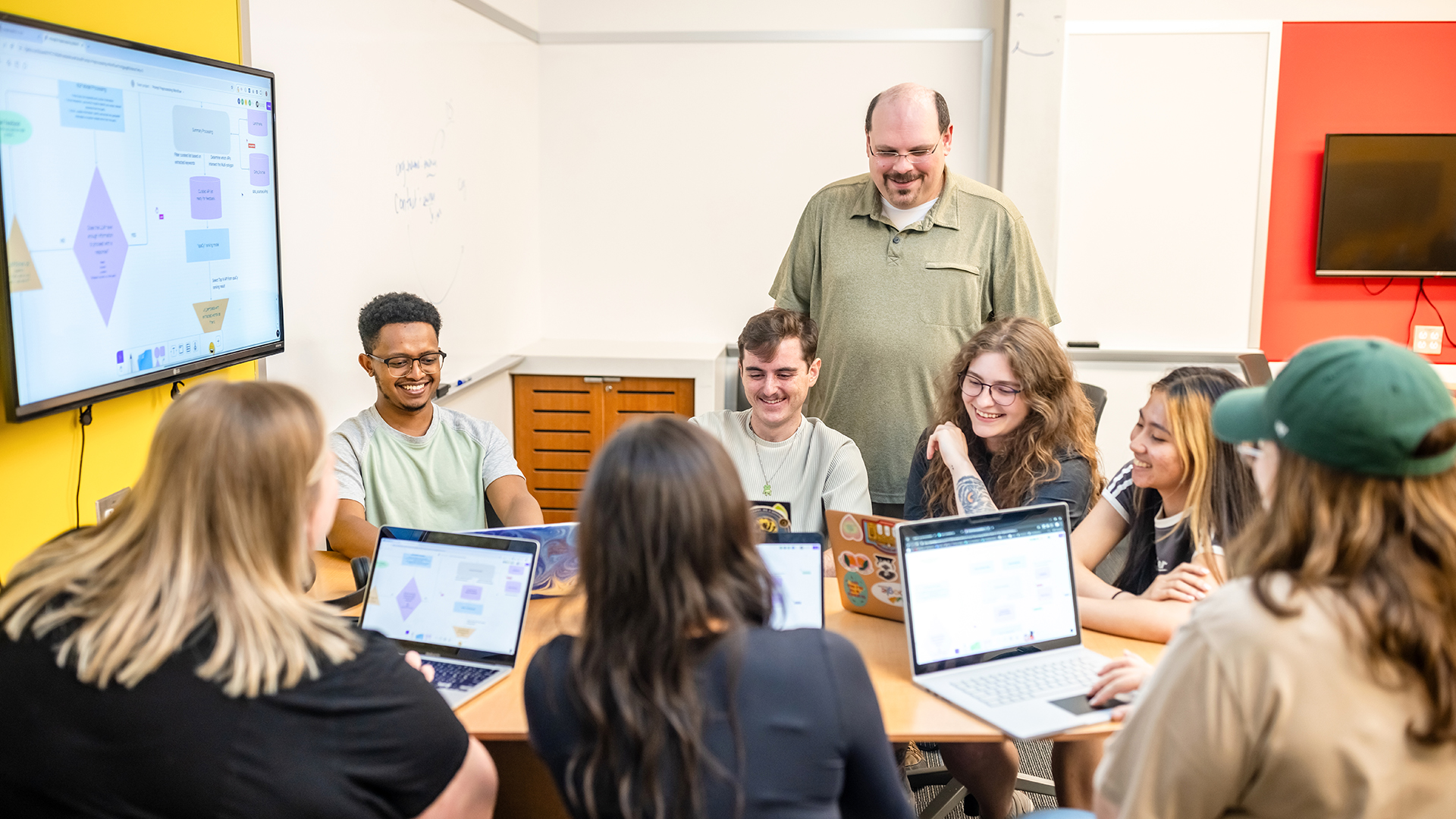Not your grandparents’ rain barrel
Industrial design students debut concepts for a better rain barrel, compete for cash prizes on March 15.

If you have grandparents then you’ve probably seen a rain barrel. You know the one – a lidless plastic garbage can with a window screen balanced on top, placed just beneath a downspout. The high-end models even feature a rock holding the screen in place. And the water, well, let’s just say even the plants are a little suspicious of the quality.
Ironically, rain water collection was illegal in Colorado until last year (not that it stopped your grandparents). When that century-old law was scratched from the books in 2016, it seemed like a good time to rethink – or even better, redesign – grandpa’s humble rain barrel.
That’s what professor Ted Shin had in mind when he assigned the task to students in his Intermediate Industrial Design Studio class at Metropolitan State University of Denver. But this class project had an added wrinkle – a design competition with cash prizes doled out to the winners.

“The goal is to create a better, more functional rain barrel; to take a relatively simple object and try to imagine it in a new way,” says Shin, chair of the Industrial Design Department. “The competition element just makes it a little more fun.”
To raise the stakes, students were split into seven teams. Each was given six weeks to complete the same task: design a 55-gallon barrel that prevents mosquito breeding, eliminates the first polluted flush of rainwater off a roof, allows for efficient transport to landscaping sites, and looks good doing it.
Teams will present their design concepts on March 15, including ideation, sketches and even small-scale models. The competition will be judged by working professionals from Denver Botanic Gardens, Denver Water and sustainability consulting firm the Brendle Group.

The top two teams will receive cash prizes, and if they impress the right judge, maybe even get their design out of the classroom and into the real world.
The event is sponsored by the One World One Water Center for Urban Water Education and Stewardship at MSU Denver. Center Director Tom Cech played a crucial role in developing the project. He also recruited the judges and provided early feedback to students on their concepts.
For Shin, this type of real-life project not only prepares students for how they’ll work in the field, but also imparts another important lesson: “Design is not just about making pretty things. Working on a project like this also helps students think about how their work can have a positive impact on the environment and public health.”
Not to mention backyard gardeners – even grandparents.








